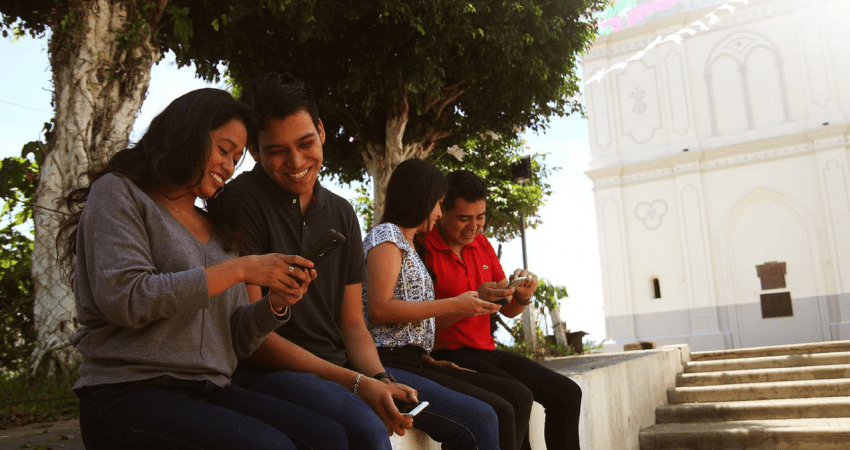IOM Campaigns Help Communities in Mexico and Central America Seek Alternatives to Irregular Migration

San José – C4D is shorthand for ‘communication for development’, a staple of messaging campaigns in the humanitarian realm. The enduring question, for bodies like the International Organization for Migration (IOM), is, do they work?
A review of four C4D campaigns implemented by the IOM in Mexico, Guatemala, Honduras and El Salvador has revealed the effectiveness of promoting safe migration through participative and evidence-based activities.
In Mexico, the Migrar Informados (Informed Migration) campaign was developed to inform Central American migrants in transit about migratory regularization options. Échale ganas (Go for it!) in Guatemala, Conectá con tu futuro (Connect with Your Future) in El Salvador and Ponele plan a tu vida (Plan Your Life!) in Honduras, focused on encouraging young people to develop a life plan, be informed about the alternatives to irregular migration and understand the risks it entails.
Since their launch, in 2019, the campaigns have reached over 28,000 people online plus over 8,000 face-to-face interactions. Moreover, an evaluation carried out on the targeted audience of 2,000 mostly young potential migrants shows that the campaigns increased their knowledge on the risks of irregular migration, in comparison with the results of a first survey conducted in the same communities prior to IOM engagement.
The increase after conducting the campaigns is 42 per cent in Honduras, 25 per cent in Guatemala, 20 per cent in Mexico, and 8 per cent in El Salvador.
Additionally, fewer people in the targeted communities believe that hiring the services of a smuggler is a good option: a decrease of around 25 per cent in northern Central America and 14 per cent in Mexico.
“I feel good about the videos I watched, because I no longer want to fall into the trap of many extortionists. This is a breakthrough for me, it has helped me a lot,” said a young Honduran migrant interviewed in Tapachula, Mexico.
The campaigns rolled out in northern Central America also recorded increases (47% in El Salvador and 27% in Guatemala) in the number of respondents who said they would consider local development options as alternatives to irregular migration. Additionally, the number of people who would endeavor to obtain documents to migrate regularly from Guatemala, El Salvador, Honduras and México grew, by an average of 18 per cent.
“This campaign spoke to me very strongly because there are many young people who are migrating without having a plan, study or work… What impacted me the most was the recommendations given by IOM and other organizations to prevent violence. It's something beautiful, because it really supports youth,” said Eder Valle, a young Honduran from the Cofradía community.
"These campaigns are of great relevance for a region in which, during 2019, for instance, the Mexican Government estimated having undertaken more than half a million immigration procedures, the highest figure in the last six years," said Marcelo Pisani, IOM Regional Director for Central America, North America and Caribbean. “Alternatives for irregular migration are urgent for countries such as Guatemala, Honduras and El Salvador, which during 2019 received almost a quarter of a million deported or returned migrants from Mexico and the United States.”
Work will continue in 2020 with follow-up activities in the four communities that participated and the addition of six new communities in Mexico, Guatemala, El Salvador, Honduras, Costa Rica and Panama.
The four evaluated IOM campaigns were developed under the very successful model of IOMX, previously used in Asia.
The campaigns are being implemented within the framework of the Western Hemisphere Migration Capacity-Building Program, with funding from the Office of Population, Refugees and Migration (PRM) of the United States State Department. Thanks to the Government of Canada's Immigration, Refugees and Citizenship (IRCC)’s contribution, under the Project Communicating Risks of Irregular Migration in Central America, these efforts are being fostered to reach more communities.
Find out more about the campaigns here: SP | EN.
For more information please contact Tatiana Chacón at the IOM Regional Office for Central America, North America and the Caribbean, Tel: +506 2212 5300, Email: tchacon@iom.int